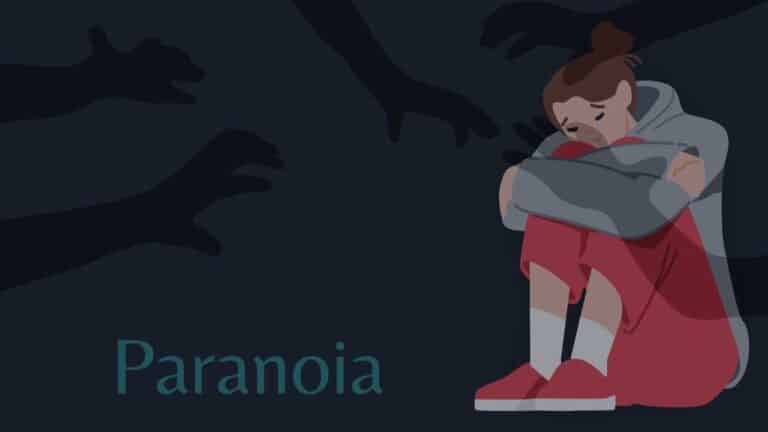Paranoia is a complex mental health condition characterized by persistent and irrational feelings of mistrust or suspicion. People with paranoia often believe they are being watched, targeted, or conspired against, even without evidence to support these thoughts. These unfounded fears can create challenges in forming relationships, maintaining employment, and navigating daily life.
Paranoia can occur as a symptom of various mental health disorders, including paranoid personality disorder, delusional disorder, and paranoid schizophrenia. Understanding its causes, symptoms, and treatment options can help individuals and their loved ones manage this condition effectively.
Table: Types of Paranoia and Their Characteristics
| Type of Paranoia | Key Features | Examples |
|---|---|---|
| Paranoid Personality Disorder | Persistent mistrust and suspicion of others; difficulty forming close relationships. | Believing coworkers are plotting to undermine you without evidence. |
| Delusional (Paranoid) Disorder | Fixed false beliefs centered on persecution, jealousy, or other themes without other psychotic symptoms. | Thinking neighbors are spying on you or that you are romantically involved with a celebrity you’ve never met. |
| Paranoid Schizophrenia | Severe paranoia accompanied by delusions, hallucinations, and difficulty distinguishing reality. | Believing your thoughts are being broadcast on the radio or that aliens are controlling your mind. |
What is Paranoia?

Paranoia involves an intense mistrust of others, often accompanied by irrational beliefs about harm or persecution. While some level of caution is a normal part of human behavior, paranoia takes this to an extreme, interfering with a person’s ability to function socially or professionally.
People with paranoia may experience:
- Persistent feelings that others are plotting against them.
- Beliefs that they are being constantly watched or judged.
- Reluctance to confide in others due to fear of betrayal.
Paranoia is not a standalone diagnosis but a symptom that may appear in various mental health conditions.
Symptoms of Paranoia
The symptoms of paranoia can range from mild suspicion to severe delusions. They may vary depending on the underlying condition but generally include:
- Being easily offended or hypersensitive to criticism.
- Difficulty trusting others, even close friends or family.
- Interpreting harmless comments or actions as harmful or threatening.
- Always being on the defensive and argumentative.
- Believing in conspiracy theories without evidence.
- Feeling persecuted or victimized by the world at large.
- Struggling to forgive or move past perceived wrongdoings.
- Avoiding relationships or social situations due to mistrust.
These symptoms can significantly impact a person’s quality of life, creating barriers to communication and connection.
Types of Paranoia
Paranoia is associated with three primary mental health conditions, each varying in severity and presentation.
Paranoid Personality Disorder
This is the mildest form of paranoia, often beginning in early adulthood. People with paranoid personality disorder (PPD) function relatively well but have a persistent mistrust of others. This mistrust often extends to personal relationships, making it difficult for them to form close bonds.
Delusional (Paranoid) Disorder
This condition involves persistent delusions—fixed, false beliefs—without other signs of mental illness. The nature of the delusion determines the person’s behavior. For instance, someone with a delusion of persecution may believe they are being followed or spied on, while someone with a delusion of grandeur may believe they possess extraordinary abilities or influence.
Paranoid Schizophrenia
The most severe type of paranoia, paranoid schizophrenia, is characterized by bizarre delusions and hallucinations. Individuals may believe their thoughts are being broadcast or controlled by external forces. This condition often makes the world seem chaotic and threatening, requiring comprehensive treatment to manage symptoms.
Causes of Paranoia
The exact causes of paranoia are not fully understood, but researchers believe it results from a combination of genetic, environmental, and psychological factors.
Genetics
Some studies suggest a genetic predisposition to paranoia, though the evidence is inconclusive. A family history of mental health disorders may increase the likelihood of developing paranoia.
Brain Chemistry
Neurotransmitters like dopamine and serotonin play a role in regulating thoughts and emotions. Imbalances in these chemicals may contribute to paranoid thinking. Certain substances, including cocaine, marijuana, and amphetamines, can also alter brain chemistry and trigger paranoia.
Trauma and Stress
Traumatic experiences, especially during childhood, may contribute to the development of paranoia. Abuse, neglect, or prolonged stress can distort how a person perceives others and interprets their actions.
Environmental Factors
Stressful life events, such as imprisonment, war, or social isolation, have been linked to paranoia. Chronic stress can heighten feelings of mistrust and fear, leading to paranoid thoughts.
Combination of Factors
Most experts agree that paranoia results from an interplay of genetic vulnerabilities, brain chemistry, environmental stressors, and life experiences.
Diagnosing Paranoia
Diagnosing paranoia can be challenging, as it often overlaps with symptoms of other mental health conditions, including anxiety, depression, and dementia. Additionally, individuals with paranoia may avoid seeking medical help due to mistrust of healthcare providers.
A thorough diagnosis typically involves:
- Reviewing the person’s medical history.
- Conducting a physical examination to rule out medical conditions or substance use.
- Assessing psychological symptoms through interviews and standardized tests.
- Evaluating the possibility of co-occurring mental health conditions.
Accurate diagnosis is essential to develop an effective treatment plan tailored to the individual’s needs.
Treatment for Paranoia
Although paranoia cannot always be cured, treatment can significantly reduce symptoms and improve quality of life. The choice of treatment depends on the severity of paranoia and the underlying condition.
Medications
Medications such as antipsychotics or anti-anxiety drugs are often prescribed to manage symptoms of paranoia. These medications can help regulate brain chemistry and reduce feelings of fear or mistrust. However, individuals with paranoia may resist taking medications due to fears of harm or control.
Psychotherapy
Therapy can help individuals identify and challenge irrational beliefs, develop healthier thought patterns, and improve coping skills. Cognitive-behavioral therapy (CBT) is particularly effective in addressing paranoia by helping individuals recognize distorted thinking and gradually rebuild trust.
Coping Skills Training
Coping strategies can enhance social functioning and reduce anxiety. Techniques may include relaxation exercises, mindfulness meditation, and behavior modification programs.
Hospitalization
In severe cases, hospitalization may be necessary to stabilize the individual’s condition and provide intensive treatment. This is often required for those experiencing delusions or hallucinations that significantly impair their ability to function.
Tips for Managing Paranoia
Paranoia can feel overwhelming, but certain strategies can help individuals manage their symptoms and maintain a sense of control.
Focus on Relaxation
Stress exacerbates paranoid thoughts. Practice relaxation techniques like deep breathing, yoga, or mindfulness to reduce anxiety.
Challenge Negative Thoughts
Keep a journal to record paranoid thoughts and examine their validity. This can help separate irrational fears from reality.
Build a Support Network
Surround yourself with trusted friends, family members, or support groups. Sharing your concerns with others can provide reassurance and reduce feelings of isolation.
Limit Triggers
Identify and avoid situations or substances that intensify paranoid feelings, such as high-stress environments or recreational drugs.
Seek Professional Help
Early intervention is key. Consult a mental health professional to explore treatment options and develop a personalized plan.
Supporting Someone with Paranoia
If you have a loved one with paranoia, your support and understanding can make a significant difference in their recovery journey.
- Educate yourself about paranoia to better understand their experiences.
- Avoid arguing with their beliefs, even if they seem irrational. Focus on listening and validating their feelings.
- Encourage them to seek professional help and offer to accompany them to appointments if they feel anxious.
- Be patient, as building trust may take time.
- Create a safe, nonjudgmental environment where they feel comfortable expressing their concerns.
Authentic US Sources for Further Information
National Alliance on Mental Illness (NAMI): www.nami.org
National Institute of Mental Health (NIMH): www.nimh.nih.gov
Mental Health America (MHA): www.mhanational.org
Substance Abuse and Mental Health Services Administration (SAMHSA): www.samhsa.gov
American Psychiatric Association (APA): www.psychiatry.org
Conclusion
Paranoia is a challenging condition that can impact every aspect of a person’s life, but with the right treatment and support, individuals can regain stability and improve their quality of life. By understanding the symptoms and causes of paranoia, seeking early intervention, and adopting effective coping strategies, people with paranoia can manage their condition and build healthier relationships.
If you or someone you know is struggling with paranoia, don’t hesitate to seek help from a trusted healthcare professional or mental health organization. Recovery is possible, and support is always available.


